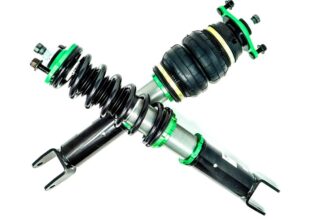boiler repair north finchley
Boiler issues can be frustrating and often lead to stress for homeowners in North Finchley. Finding reliable boiler repair North Finchley is essential for ensuring that heating systems run efficiently and safely. With skilled technicians available, residents can have their boilers assessed, diagnosed, and repaired promptly, minimizing downtime and inconvenience.
From leaks and strange noises to inconsistent heating, many boilers face common issues that can arise over time. Residents often overlook the importance of regular maintenance, which can help prevent more serious problems in the future. Engaging professional services not only addresses current repairs but also offers advice on how to maintain the boiler for better performance.
Boiler repair in North Finchley is about more than just fixing problems; it’s about ensuring long-term comfort and safety in homes. Utilizing local experts who understand the unique needs of the community can make a significant difference in service quality and responsiveness.
Key Takeaways
- Professional boiler repair ensures efficient and safe heating.
- Common issues should be diagnosed early to avoid larger problems.
- Regular maintenance can prolong the life of the boiler system.
Common Boiler Issues and Diagnostics
Boilers can develop a range of issues that affect their performance. Understanding these common problems and how to diagnose them can help homeowners address concerns promptly.
Identifying Common Faults
Common boiler faults include leaks, strange noises, and inconsistent heating. Leaks may signal problems with the pump or valves, causing water to escape. Strange noises, like banging or whistling, often point to air trapped in the system or issues with the heat exchanger. Inconsistent heating can arise from thermostat malfunctions or sediment buildup in the heat exchanger.
Homeowners should also look for warning signs such as error messages on the display, which often indicate specific problems. Regular checks can help catch these faults early, ensuring the boiler operates efficiently.
Tips for Preliminary Assessments
Before calling a technician, homeowners can perform a few basic checks. First, ensure the boiler is powered and the thermostat is set correctly. If the system is unresponsive, resetting it may help.
Next, check for visible leaks or signs of water damage around the boiler. Noticing unusual sounds can indicate underlying issues that need attention.
A quick assessment of radiator performance may also provide clues. If some radiators are cold while others are warm, it could mean air is trapped in the system, which can be removed through bleeding.
Understanding Boiler Error Codes
Most modern boilers display error codes when issues arise. Each code corresponds to a specific problem, making it easier for homeowners to understand what’s wrong. For example, a code like E02 might indicate low water pressure, while E10 could signal a fault with the ignition system.
Consulting the boiler’s manual can help decipher these codes. This understanding allows homeowners to provide accurate information to technicians, speeding up repairs. Manufacturers often have resources available online, including lists of error codes and possible solutions.
Professional Repair Services
When dealing with boiler repairs, it is important to choose the right technician, understand their qualifications, and know the typical repair process. Each factor plays a crucial role in ensuring the repair is done correctly and safely.
Choosing the Right Technician
Selecting a qualified technician is essential for effective boiler repairs. Look for a professional who has experience with the specific type of boiler. They should have a good reputation in North Finchley, supported by customer reviews or ratings.
A local technician familiar with common issues in the area can respond quickly when called. Always ask about their experience and training. This helps in ensuring the technician can handle different makes and models of boilers effectively.
Certifications and Qualifications
A certified technician should hold relevant qualifications to perform boiler repairs safely. Certifications from organizations such as Gas Safe Register are crucial. This certification indicates that the technician is trained to work with gas appliances.
In addition to Gas Safe Registration, other qualifications can include City & Guilds or NVQ certifications in plumbing and heating. Verifying these credentials gives peace of mind that the technician follows safety regulations and industry standards.
Repair Process Overview
The boiler repair process generally begins with an initial assessment. A technician will check for leaks, unusual noises, and heating issues. After identifying the problem, they will explain the required repairs and provide a quote.
Common repairs might involve fixing valves, replacing thermostats, or addressing heating element problems. The technician should always ensure the system is safe before beginning repairs. Once completed, the technician will often test the system to confirm it operates correctly.
This overview helps customers know what to expect during the repair process, ensuring clear communication and effective service.
Maintaining Your Boiler Post-Repair
Regular maintenance is crucial for a boiler’s efficiency and longevity. After a repair, taking care of the boiler helps ensure it operates smoothly and safely for years to come.
Routine Maintenance Tips
To keep a boiler in good shape, owners should follow several key practices:
- Check the Pressure Gauge: Ensure the pressure is between 1-1.5 bar. Low pressure may indicate a problem, while too high can cause damage.
- Bleed Radiators: Air buildup can decrease heating efficiency. Bleed radiators regularly to release trapped air, which helps restore heat distribution.
- Inspect Vents and Flues: Ensure that vents and flues are free from debris. Blockages can lead to dangerous fumes lingering in the home.
- Monitor for Leaks: Regularly check for leaks around the boiler. Even a small leak can indicate larger problems.
- Keep It Clean: Dust and debris can accumulate around the boiler. Maintaining cleanliness helps prevent issues and allows for efficient operation.
- Annual Service: Schedule yearly checkups with a qualified technician. Regular servicing can catch potential issues before they become major problems.
When to Schedule Professional Servicing
Knowing when to call in a professional is essential for safety and performance.
- Signs of Malfunction: If unusual noises, error codes, or changes in performance occur, it’s time to contact a technician. Ignoring these signs can lead to bigger issues.
- Every Year: An annual professional service is recommended. This ensures that all components function correctly and safely.
- After Major Repairs: After any significant repair, schedule a follow-up service. This helps verify that the boiler operates effectively and no new issues have arisen.
- Before Winter: Fall is an ideal time for servicing. Ensuring the boiler is prepared for winter helps avoid breakdowns during cold months.
By adhering to these tips, boiler owners can maintain optimal performance and safety for their heating systems.














